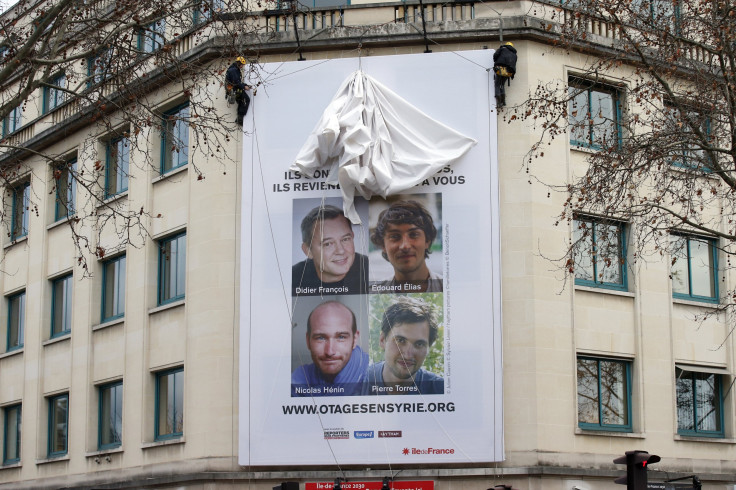French Journalist Nicolas Henin Held Hostage In Syria By Brussels Jewish Museum Suspect Mehdi Nemmouche

French journalist Nicolas Hénin, who was held captive in Syria for 10 months beginning in June 2013, identified one of his captors as Mehdi Nemmouche, the man charged with the deadly 2014 attack at the Brussels Jewish Museum. Henin wrote of his time in captivity for the French publication, Le Point.
“When Nemmouche wasn’t singing, he was torturing. He was a member of a small group of Frenchmen whose arrival meant torture for the 50 or so Syrian prisoners being held in the neighboring cells,” Hénin wrote in French. “Every night the blows began in the room where I, myself, was interrogated. The torture lasted throughout the night until the dawn prayer. Prisoners' howls were sometimes met with screams in French.”
Hénin said Nemmouche “mistreated” him during his captivity, threatening to hit him and menacingly cracking his fingers while doing so.
Nemmouche is accused of killing four people when he opened fire at the Brussels Jewish Museum in Belgium early this May. He was arrested in Marseilles at the end of May, where police found an Islamic State flag in his suitcase. He was later extradited to Belgium, where he awaiting trial. He denies the charges.
French publication Le Monde first broke the news of Hénin’s captivity, which he had kept relatively quiet since he was released in April. In his own account of events, Hénin said he was kept in a windowless room that had been transformed into a prison by the Islamic State.
While in Syria, Hénin was held for some time with U.S. journalists James Foley and Steven Sotloff, who were later beheaded in separate Islamic State propaganda videos. When the video of Foley's murder released, Hénin told the Associated Press that the U.S. journalist was treated much more brutally by their captors because of his citizenship and because one of his brothers was in the U.S. Air Force.
Hénin also was held with French journalist Didier François, who spoke of his kidnapping only in August, for fear that hostages still left in Syria would be punished further.
“I never spoke publicly of this, because before we left the captors threatened repercussions on the remaining hostages,” François told Agence-France Press in August.
About 900 French citizens are said to have gone to fight in Syria, according to French authorities.
© Copyright IBTimes 2024. All rights reserved.












